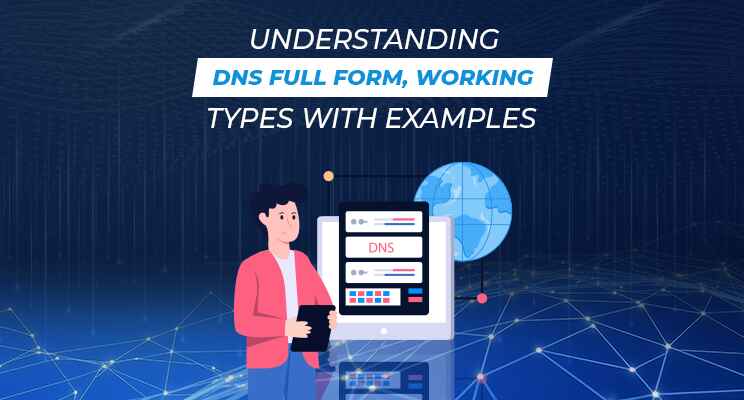In the world of computer networking, one of the most important systems that keeps the internet running smoothly is the Domain Name System (DNS). Every time you type a website address like www.uninets.com
in your browser, DNS in computer networks is working in the background to translate that human-readable name into an IP address. Without DNS, accessing online resources would require remembering long sequences of numbers instead of simple domain names.
At UniNets, where we provide advanced IT infrastructure training such as Cisco Data Center courses, Cisco ACI training, and SD-WAN training, learners frequently ask about DNS, port numbers in networking, and related topics because they form the backbone of computer networks. In this blog, we’ll explain how DNS works, why it matters, and how it connects with essential networking concepts and certifications.
What is DNS in Computer Networks?
The Domain Name System (DNS) is a distributed database that maps domain names to IP addresses. It acts like a phonebook for the internet, enabling users to access websites by typing names instead of IP numbers.
For example:
When you type www.google.com
, DNS translates it to an IP address like 142.250.190.14.
This process is seamless and happens within milliseconds.
DNS is a crucial part of the CCNA syllabus and is often asked in computer mcq exams and networking mcq questions.
How DNS Works
The process of DNS resolution involves multiple steps:
User Request: You enter a domain name in your browser.
DNS Resolver: The request is sent to a DNS resolver, often provided by your ISP.
Root Servers: If the resolver does not know the answer, it queries the root DNS servers.
TLD Servers: The root server directs the query to Top-Level Domain servers (.com, .org, etc.).
Authoritative Servers: These servers return the final IP address of the requested domain.
Response: The IP address is sent back to your computer, and the website loads.
This entire process uses port number 53 (DNS port), one of the most important port numbers in networking. Knowing such details is crucial for anyone preparing for ccna exam topics or cisco data center training.
Importance of DNS in IT Infrastructure
DNS plays a vital role in:
Website Accessibility – Without DNS, the internet would be extremely difficult to use.
Load Balancing – DNS can distribute traffic across multiple servers for efficiency.
Security – DNS firewalls can block malicious sites.
Network Efficiency – Cached DNS results reduce latency.
That’s why in Cisco Data Center courses and Cisco ACI training, learners are taught how DNS integrates with enterprise networks.
DNS and Port Numbers in Networking
Understanding port numbers in networking is critical because services like DNS rely on specific ports. For DNS:
Port 53 is used for both UDP and TCP DNS queries.
Other ports in networking, like 80 (HTTP) and 443 (HTTPS), depend on DNS for resolving domain names.
In fact, memorizing the port number list is a key requirement in computer networks mcqs and networking mcq questions.
DNS and Certifications
Cisco Data Center Training
DNS is essential in large data centers where thousands of servers need to be connected seamlessly.
Students in cisco data center courses must understand DNS for virtualization, cloud, and hybrid networking.
Cisco ACI Training
Cisco ACI course covers how application-centric infrastructure relies on DNS and IP addressing for automation.
DNS configuration helps in application policies and service discovery.
SD-WAN Training
In cisco sd-wan training or sd wan course, DNS is important for resolving domain names to connect branch offices to cloud applications.
Understanding DNS helps in optimizing WAN traffic flow.
Common DNS Interview and Exam Questions
DNS is a favorite topic in both computer network mcq and networking mcq questions. Here are some examples:
Which port number is used by DNS?
Answer: Port 53.
What is the function of DNS in computer networks?
Answer: To resolve domain names into IP addresses.
DNS works on which layer of the OSI model?
Answer: Application Layer.
Such questions are part of computer networks mcqs, ccna topics, and ccna syllabus pdf study materials.
DNS Security Challenges
While DNS is powerful, it is also a target for attacks such as:
DNS Spoofing – Hackers provide false DNS responses.
DNS Amplification – Used in DDoS attacks.
Cache Poisoning – Altering cached DNS records.
For this reason, IT infrastructure training at UniNets emphasizes DNS security. Advanced certifications like Cisco ACI training and SD-WAN course also discuss securing DNS traffic.
Why DNS is a Core Topic in IT Infrastructure Training
When you study IT infrastructure with UniNets, DNS is one of the first topics introduced because it connects to:
Port numbers in networking (essential for CCNA).
Computer mcqs and networking mcq questions (important for practice).
Cisco certifications (ACI, Data Center, SD-WAN).
Transmission media and network topologies (since DNS queries travel through physical and logical networks).
Conclusion
The Domain Name System DNS in computer networks is the backbone of the internet, enabling users to connect to websites without memorizing IP addresses. For networking professionals, mastering DNS is critical—not only for computer mcq exam preparation but also for advanced certifications like Cisco Data Center courses, Cisco ACI training, and SD-WAN training.
At UniNets, we help learners understand DNS deeply, practice with computer network mcqs, and apply concepts in real labs. From port numbers in networking to DNS troubleshooting, our training ensures students are job-ready and exam-ready.





Comments